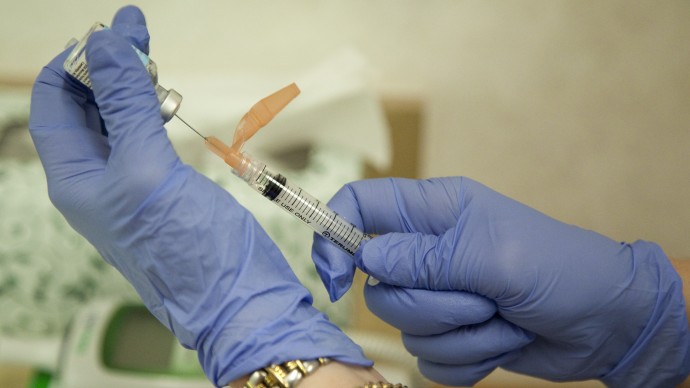
The Colorado House of Representatives passed a bill that would require parents seeking to exempt their children from vaccination for non-religious reasons to complete online education regarding the risks of not vaccinating their children.
The bill, Colorado HB 1288, is aimed at increasing the percentage of children in the state who are vaccinated. It passed in a 42-19 vote in the House and will now move into the state Senate.
This bill represents the latest battleground in the growing war against anti-vaccine advocates. A growing number of states are pushing legislation designed to fight back against disproven information concerning the safety of childhood inoculations. While immunizations are not mandatory in the United States, health authorities are increasingly making a stance for ensuring the public health.
“This is not mandatory vaccinations, this is not a change to personal belief exemption,” said state Rep. Dan Pabon, the sponsor of the legislation. “This is simply saying, ‘If you exercise this option, you will get some disclosures about the risks and benefits.’”
Colorado is one of just 18 states that permit medical, religious or personal belief exemptions from vaccination. While virtually every child in Alabama, Delaware, Kentucky, Louisiana, Mississippi, New Mexico, New York, North Carolina and Virginia has been inoculated, Illinois, Oregon and Vermont — three states that permit exemptions from vaccination — have uninoculated children populations in excess of 6 percent.
Oregon and Washington state have recently adopted legislation to make it more difficult to receive vaccine exemptions. Oregon will begin its education requirement for exemptions this month.
“We want to make sure parents and guardians receive science-based information about the benefits and risks of vaccine,” Stacy de Assis Matthews, school law coordinator for Oregon’s Public Health Division, told The Associated Press. “There is a lot of misinformation out there on the Internet.”
Oregon’s percentage of school-aged children who are not immunized is more than three times the national average. In some schools in the state, the non-immunization rate is as high as 70 percent. The national average for immunization exemption for kindergarten students is approximately 1.8 percent.
The idea of immunizations, in which inert or weakened infectious disease matter is injected into a body in the hope that the body will develop antibodies against the disease, has been controversial for as long as immunizations have been prescribed. The movement to avoid childhood immunization gained fueled when Andrew Wakefield, a British gastroenterologist, published a paper in 1998 connecting the measle/mumps/rubella immunization to autism. This argument has since been refuted and disproved by the scientific community, and research currently links autism to birth trauma and the lack of a neurological-suppressing chemical in the child’s brain at the time of labor.
Recent studies show that there is no correlation between disease incidence rates and non-medical exemptions. Despite this, those opposed to the states’ push to encourage vaccination argue on the basis of the corrosion of parental rights.
“This basically says, ‘parents of Colorado that choose not to get immunization for their kids, you’re too stupid to make this decision on your own’,” said Colorado Rep. Brian DelGrosso.


